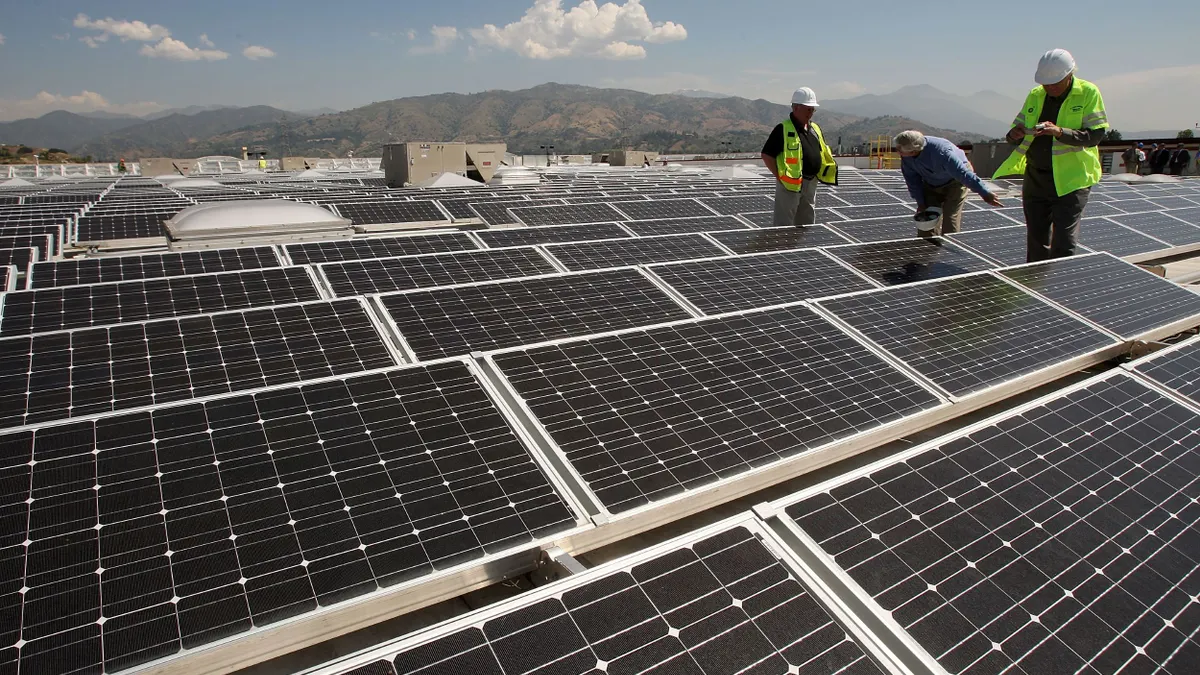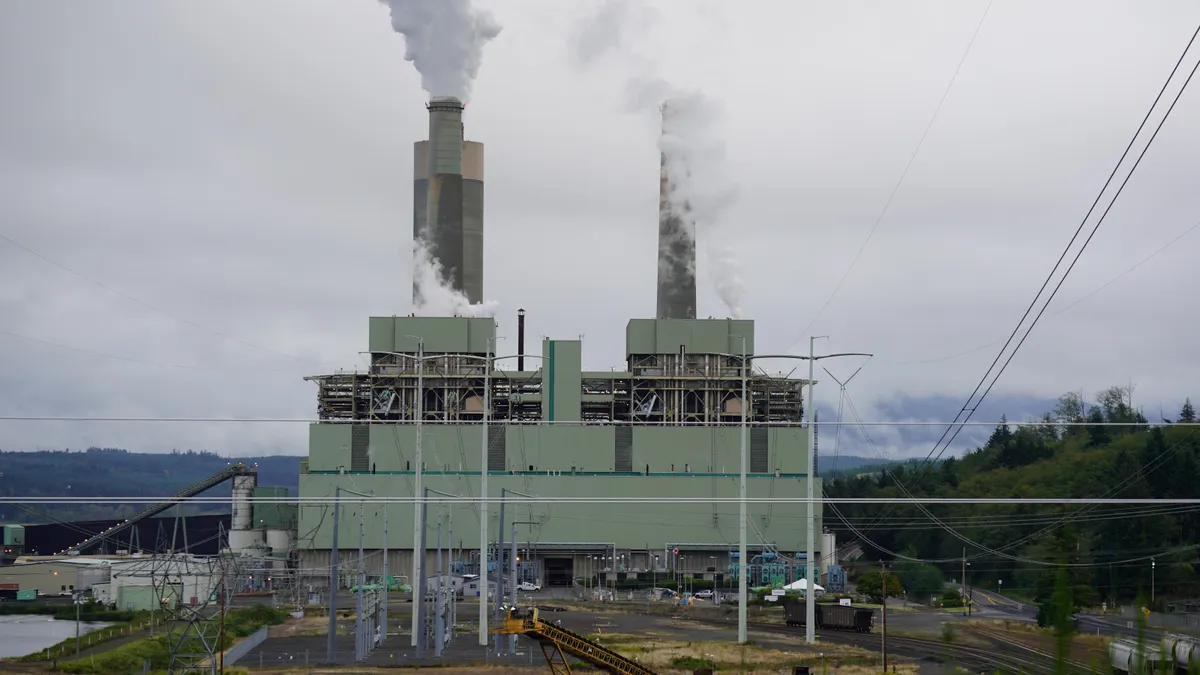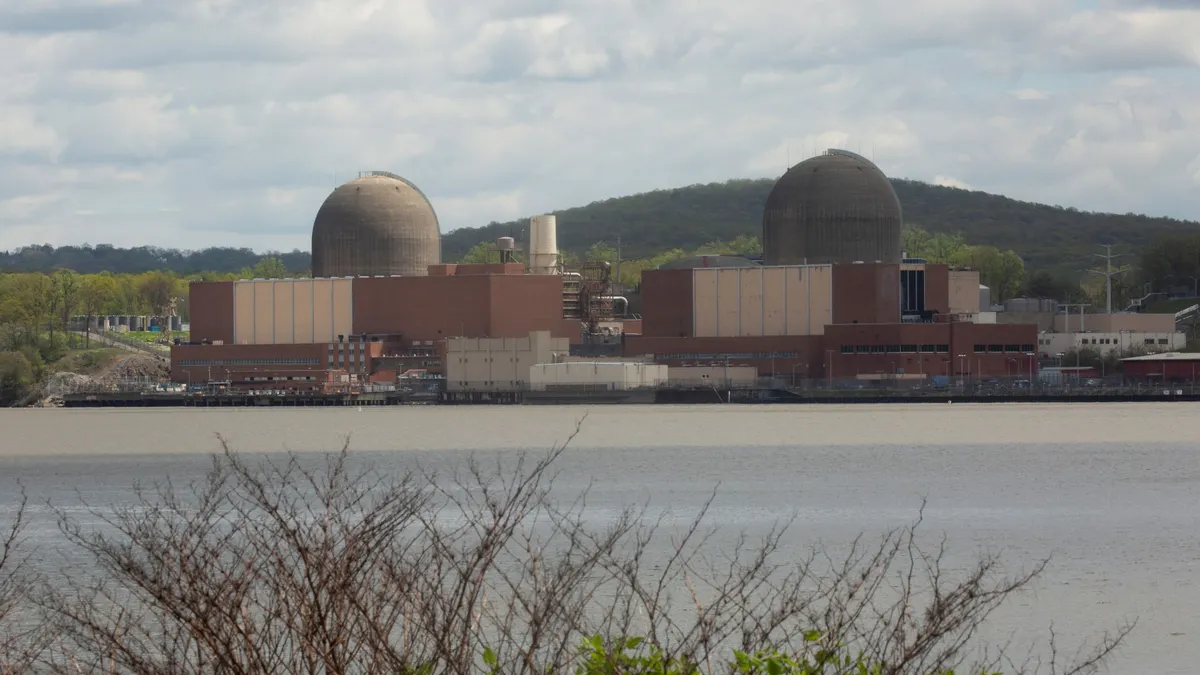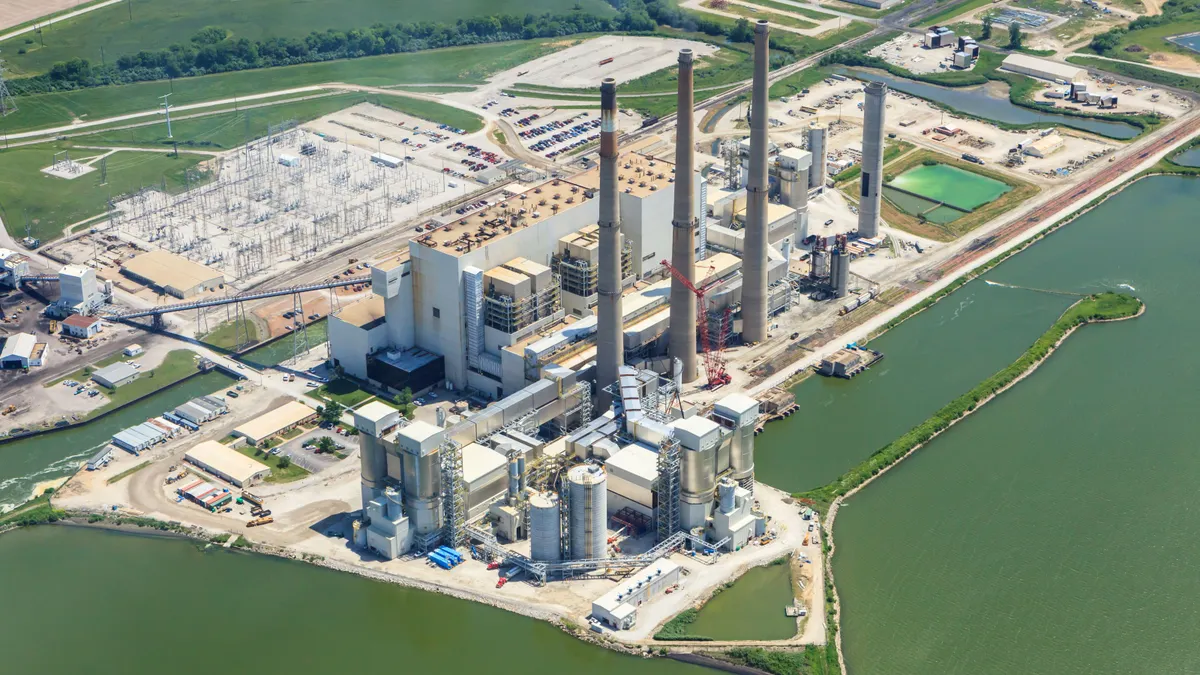Dive Brief:
- The Environmental Protection Agency has not yet determined whether it will challenge its 2009 carbon endangerment finding, nor if it will conduct a "red team, blue team" review of climate science, Administrator Scott Pruitt told a Senate committee on Tuesday.
- Pruitt also indicated EPA did not perform a health analysis before issuing a decision to rescind the "once in, always in" (OIAI) rule for major sources of hazardous air pollution under the Clean Air Act. Instead, the decision was based on legal interpretation of the statute and a desire to improve incentives to install pollution control equipment.
- Sen. Tom Carper (D-DE), the ranking member on the committee, told reporters after the hearing that Democrats would continue to oppose other EPA nominations, including the would-be Assistant Administrator Andrew Wheeler, until the Trump administration withdraws the nomination for Kathleen Hartnett-White to head the White House Council on Environmental Quality.
Dive Insight:
Pruitt's first oversight hearing at the Senate Environment and Public Works Committee revealed little about the EPA's plans for regulations on the power sector in the year to come.
The EPA head largely avoided making concrete policy statements on pending regulatory actions like the replacement of the Clean Power Plan. But he made clear the agency has not ruled out a challenge to the carbon endangerment finding, which underlies the CPP and other federal actions to limit greenhouse gases.
Asked by Carper if he would challenge the endangerment finding, Pruitt responded only that "no decision or determination" has been made on it yet.
The administrator has so far resisted calls from conservative activists to challenge the 2009 finding, a move that would severely restrict the federal government's authority to regulate carbon if successful. In his confirmation hearing last year, Pruitt said the finding is the "law of the land," but then in July he told Reuters there could be a legal case for unraveling it.
In a House hearing in December, Pruitt said he believed the Obama administration "short-shrifted" the scientific analysis behind the endangerment finding. A challenge of the finding in court would likely be an uphill battle, but establishing an internal "red team, blue team" panel to critique climate science could be a first step.
Pruitt told the committee that decision is still "under consideration."
"There are questions we know the answer to and questions we don't know the answer to, for example what is the ideal surface temp in year 2100 is something folks have different perspectives," Pruitt said. "So that red team, blue team exercise is an opportunity to provide the American people opportunity to consume info from scientists who have different perspectives on key issues, and frankly could be used to build consensus in this body."
Pruitt denied reports that the White House had stepped in to stop the climate review, but also linked it to the EPA's authority to regulate carbon under Section 111 of the Clean Air Act, which underpinned the Clean Power Plan.
"As you know the Clean Air Act that was amended in 1990, as you look at it many who were involved in that process recognized that CO2 was not part of the discussion under Section 111," he said. "So we have much work to do legally and procedurally but [red team, blue team] is under consideration."
Throughout the hearing Democratic senators sharply critiqued Pruitt for attempts to roll back clean air regulations and "wage a war on climate science," in the words of Carper. Republicans praised the administrator, saying the regulatory rollbacks would help create jobs.
In one exchange, Carper asked Pruitt if the EPA conducted a health analysis before issuing a decision to end the OIAI rule that made major pollution sources subject to tougher emission control standards. Companies will now be able to escape the tougher standards if they take steps to cut pollution.
Pruitt responded that the EPA has statutory authority to alter the rule without such a study.
"That was a decision that was made outside of the Program Office of Air," he said. "It was a Policy Office decision."
Later, Pruitt added that the decision was "really about incentivizing investment by companies to achieve better outcomes for the environment."
"All this policy says is if those major emitters make major investment and achieve the outcomes to achieve air quality ... they ought to be rewarded and not have to be treated as a major emitter if they're no longer in that category," Pruitt said.
After the hearing, Pruitt approached the dais for a private conversation with Carper before leaving without answering questions. Carper told reporters that the conversation concerned the appointment of Wheeler as assistant administrator and Holly Graves as EPA chief financial officer.
"I made it clear we were going to find it difficult to move them forward expeditiously as long as the nomination of Kathleen Hartnett-White was still out there," Carper said. "I explained to him ... she sat right at that table and gave perhaps the worst performance I've seen in 17 years for a witness for a major institution at this administration and he needs to be mindful of that."
After that hearing, Democrats derailed Hartnett-White's nomination at the end of 2017, only to see the White House resubmit the controversial nominee in January. The hearing also revealed that Wheeler was present in meetings regarding coal plant subsidies with Department of Energy officials and coal magnate Bob Murray. Carper said those meetings would not cause him to oppose Wheeler's confirmation outright, but deserve more explanation.
"I've discussed that with him and urged him to meet with every Democrat on this committee and others off this committee to fully explain his role in the work of Mr. Murray — how he participated, if at all, in it," Carper said.





















